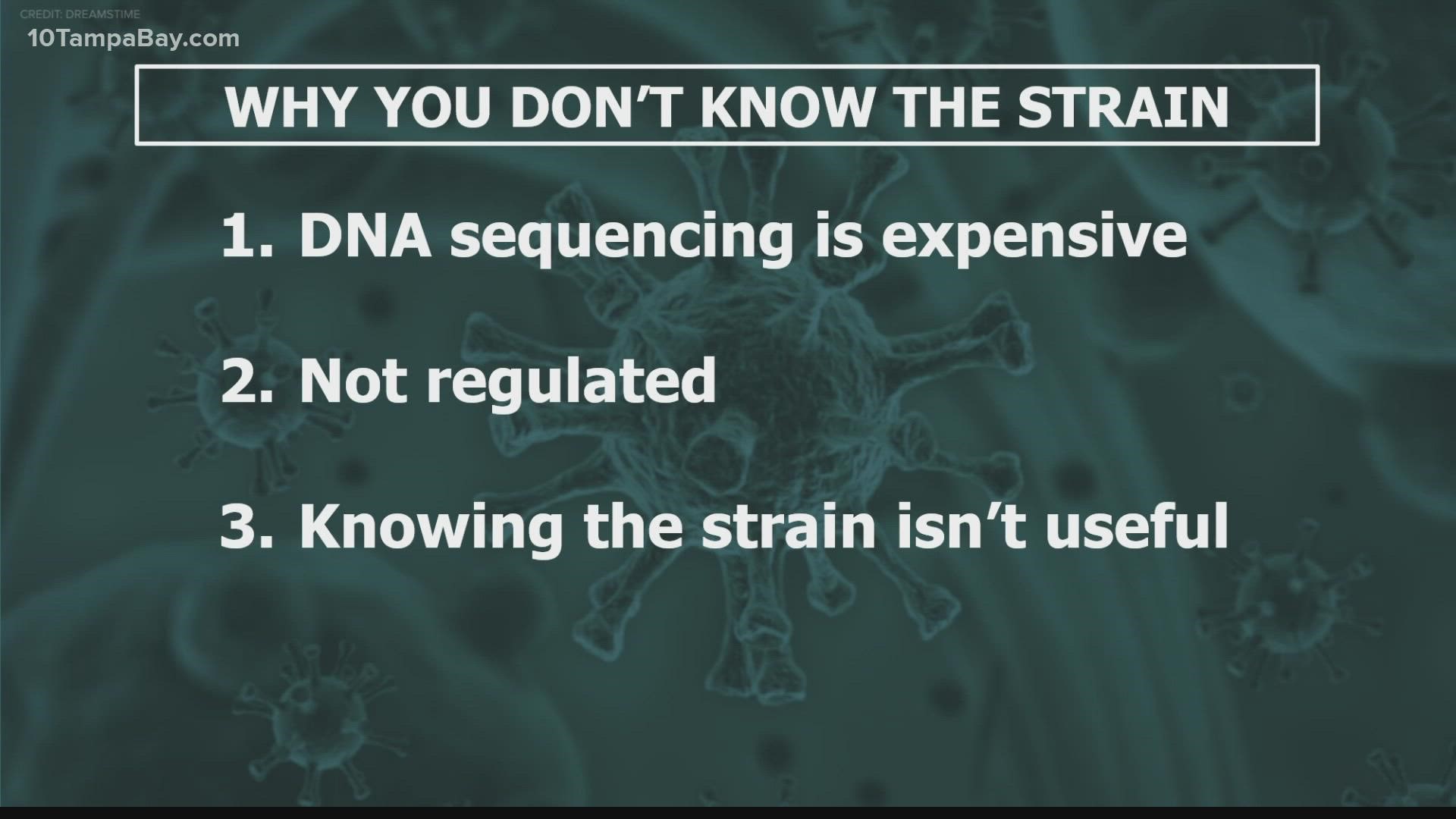TAMPA, Fla. — Health leaders say the latest surge of COVID-19 caused by the Delta variant is hitting those who are unvaccinated particularly hard.
But if you test positive, how do you know which strain you have? Well, you don't. There are a couple of reasons for this.
We talked with Dr. Jill Roberts, a molecular epidemiologist at USF Health.
She says: First, in order to know, there has to be DNA sequencing, which is really expensive. So there has to be some route to pay for it and you likely don't want to take on the cost.
Second, DNA sequencing is not regulated. Dr. Roberts says the way one lab does it may be a little bit different than the next lab. There's no way the FDA has cleared these for clinical information.
And third, knowing which strain you have does nothing for you.
"It doesn't change the way you treat it, it doesn't change the way your physician is going to handle your case. Nothing. And so it really is only helpful on that other side for the epidemiologists and things like that," says Dr. Roberts.
Now let's say you're still super curious and just have to know which strain you have. Dr. Roberts says you can make an educated guess off of the CDC's website.
The Nowcast is a model that projects more recent proportions of circulating variants and enables timely public health action. It has a breakdown of which strains are circulating in which areas.
If you look at Florida right now, you're going to see the vast majority of strains are delta. So if you have tested positive, there's a very good chance it's delta.
But again, this does not change anything for you. It's more helpful to know how Delta works with vaccines or therapies.

